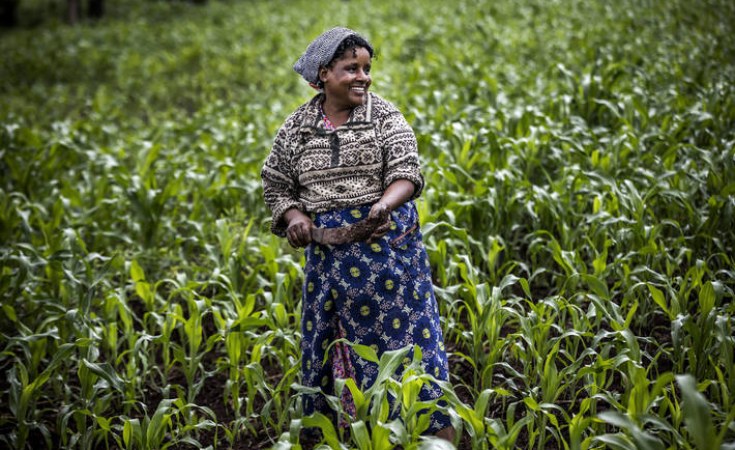Kenya goes to the polls on 9 August 2022. Farmers, who constitute a critical sector of the economy, say they have lost faith in the political process.
The high cost of production, farm inputs, and climate change have all affected the agriculture sector adversely, even though politicians promise to strengthen the position of farmers every time there's an election.
The agriculture sector makes up 65 percent of national exports and 70 percent of employment in rural areas. Farming provides a livelihood to approximately 85 percent of Kenyans.
Those vying for the presidency have already released their manifestos. Despite the pledges to reform education, security, technology and agriculture, farmers say that the promises are likely to remain no more than promises.
Presidential contenders Raila Odinga, William Ruto, George Wajackoyah and David Mwaure have promised to introduce and promote smart agriculture so that farmers can reap value for their efforts.
All four have promised to subsidise agriculture by providing farm inputs, seeds, fertilisers and chemicals.
Politicians fail farmers
According to Mungai Njoroge, a farmer in Nderu village on the outskirts of Limuru town in Kiambu County, farmers are tired of the promises made by politicians as the agriculture sector has continued to suffer from neglect.
"The politicians promise but they do not deliver. In the past there were agricultural officers walking around the fields, but nowadays they are nowhere to be seen," Njoroge tells Africa Calling podcast.
"So as the politicians say they will help the farmers; first let them give the farmers experts to train them," Njoroge says adding that politicians should seek to live by their word.
Njoroge notes that politicians rally around farmers to elect them but once they get into office they forget them.
"They will promise projects such as dams for irrigation but once they get elected into office the dream of those projects ends there," he says.
The county government did dig dams but farmers complain that the projects didn't benefit them.
"The dams were dug in the wrong sites where there is no water. For us small scale farmers, if they provide us with proper dam liners, this will help us a lot," Njoroge observes.
NGOs fill the gap
However, not all farmers agree that the politicians don't keep their word. Jane Kabui, a small-scale farmer at Tiekunu village within Kiambu County, says the previous county government tried to help farmers.
"Although I haven't received any help from the current administration, I can confirm that I received it in the previous county government. It was very helpful as we got livestock free of charge," she says.
"There was a time when each farmer in this village received ten chicks, women groups were also given goats. In the last five years I haven't seen any help," Kabui adds.
The vacuum left by government officials has been filled by non-governmental organizations which have played a major role by visiting farms and advising farmers. Government agriculture officers are nowhere to be found.
"NGOs such as Biovision Trust and Trees for the Future have helped us so much. We have been relying so much on them since we don't see the government officials at all and we don't even know them," Kabui says.
Food insecurity focus important
The Right to Food Coalition, a lobby group that brings together 12 civil society organizations, launched the food manifesto which had policy proposals for political parties and leaders to adopt on their platforms.
According to Elizabeth Kimani-Murage, a senior research scientist and leader of the nutrition and food systems unit at the African Population and Health Research Center, the political class should critically think about how to boost food security in Kenya.
"We ask political leaders to include the agenda of food in their political manifestos...and put in place structures and mechanisms to be able to address the issue of food security in Kenya," she says.
The group recommends that food and nutrition security be placed at the top of national agenda and at the same level with national security.
"Without food security, there can be no national security," she adds.
A recent report released by the National Drought Management Authority indicated that more than 4.1 million Kenyans are at risk of starvation.
Experts stress the need to transform the country's food systems.
"We need to work with farmers, on how we should address these issues of the rights to food," says Martin Oulu, Coordinator at Inter-Sectoral Forum for Agroecology and Agrobiodiversity.


